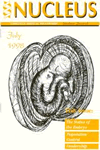We have received a number of recent enquiries about whether evangelism among patients is seen as ethical by the profession at large. The following statements from the General Medical Council (GMC) and British Medical Journal (BMJ) should make the official view of the profession clear. Whilst warning against 'abuse of privilege', we believe it still leaves an open door for appropriate and sensitive sharing of faith if and when God creates a door of opportunity. All the emphasis is ours.
The GMC's view
'The Committee's attention was drawn to the activities of a very small number of doctors who use their professional position to proselytise patients, or who offer diagnoses based on spiritual, rather than medical, grounds. The Council has hitherto taken the view that the profession of personal opinions or faith is not of itself improper and that the Council could intervene only where there was evidence that a doctor had failed to provide an adequate standard of care. The Committee supported that policy and concluded that it would not be right to try to prevent doctors from expressing their personal religious, political or other views to patients. It was agreed, however, that doctors who caused patients distress by the inappropriate or insensitive expression of their religious, political or other personal views would not be providing the considerate care which patients are entitled to expect. This view was supported by the Council and a report of the debate was published in 'The GMC News Review'; further guidance on the issue will be included in future editions of the Council's booklet of guidance.[2]
How the BMJ reported it
In its published guidance on professional conduct the General Medical Council will advise doctors that it is wrong for them to use their professional position 'to express personal beliefs in ways which may cause distress or which exploit patients' vulnerability.' The council is concerned about the small number of doctors who use their position to proselytise or offer diagnoses based on spiritual rather than medical grounds. It learnt last week that there had been three complaints during 1993 about doctors who had, for example, told patients that they would not recover until they 'gave their lives to God' or who had made judgmental comments about patients. One patient had complained that after the death of her child a general practitioner told her that she was 'evil' and that the 'devil had taken her baby'. The GMC says that it would be inappropriate to try to prevent doctors from expressing their personal, religious, political, or other views to patients.[3]
































